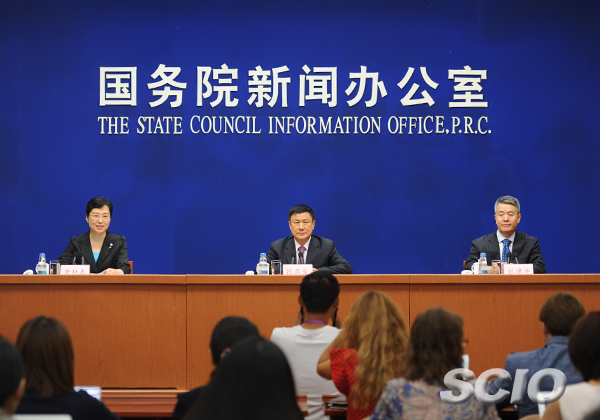BRICS to bolster bloc's role in growth
The BRICS Summit will be an important way for developing countries to explore a cooperative approach to sustainable growth and prosperity, leading Chinese experts said on Monday, dismissing concerns that the growth deceleration among the bloc's members would undermine the group's viability.
|
|
|
The State Council Information Office holds a press conference on BRICS mechanism in Beijing, Aug. 28. [Photo/China SCIO] |
Zhang Yansheng, chief economist at the China Center for International Economic Exchanges, said China is willing to expand the BRICS "circle of friends" and welcome other developing countries to the bloc so that countries can jointly address challenges that include rising protectionism and anti-globalization trends.
Leaders of Brazil, Russia, India, China and South Africa are scheduled to meet from Sept 3 to 5 in Xiamen, a resort city in Fujian province.
That growth deceleration, especially in Russia, Brazil and South Africa, which are heavily reliant on natural resources, has raised questions about how member states can transcend domestic problems and focus on further boosting their market potential through multilateral cooperation.
The bloc's share of global GDP has risen from 12 percent to 23 percent in the past 10 years, according to the Ministry of Commerce.
Outbound investment by BRICS members and foreign direct investment in these countries accounted respectively for 12 percent and 16 percent of global investment in 2016. But two-way investment among them only accounted for 6 percent.
Zhang Jianping, a researcher at the Chinese Academy of International Trade and Economic Cooperation, which is affiliated with the Ministry of Commerce, said the vast potential of trade and investment among the members will help boost the bloc's role in the global economy.
"China has the advantage in infrastructure and industrial capability and is willing to work with other BRICS countries to build a global supply chain that will create more growth opportunities for developing nations," Zhang said.
BRICS commerce ministers reached agreements at a meeting in Shanghai this month to boost trade, investment, e-commerce and cooperation in intellectual property rights.
Wei Jianguo, vice-president of China Center for International Economic Exchanges, said the summit in Xiamen will herald the start of the bloc's "second golden decade" representing the interest of developing nations and emerging economies.
"In addition to trade and investment, the member states should explore new areas such as the financial, cultural and education sectors to boost cooperation," Wei said.
